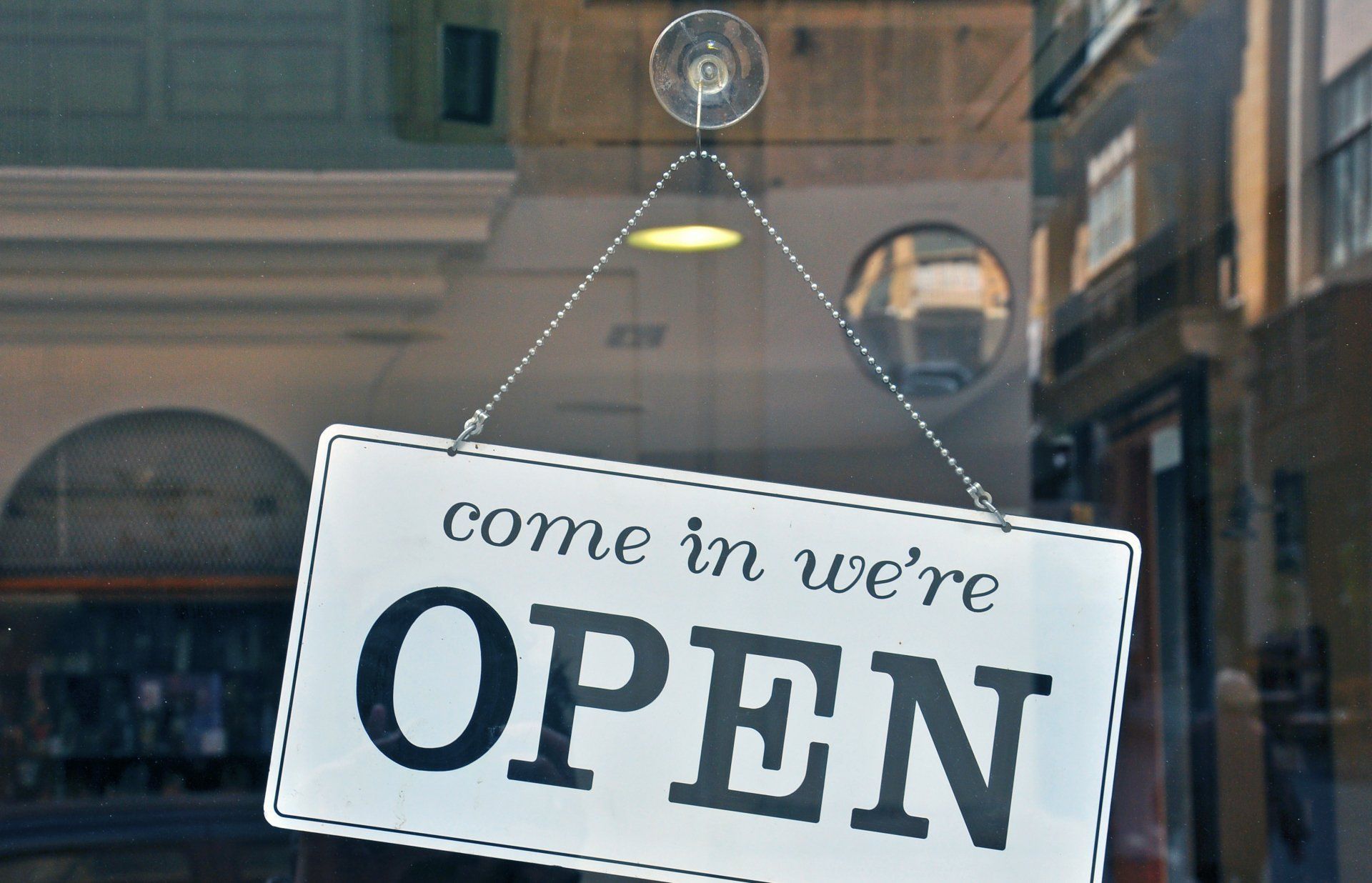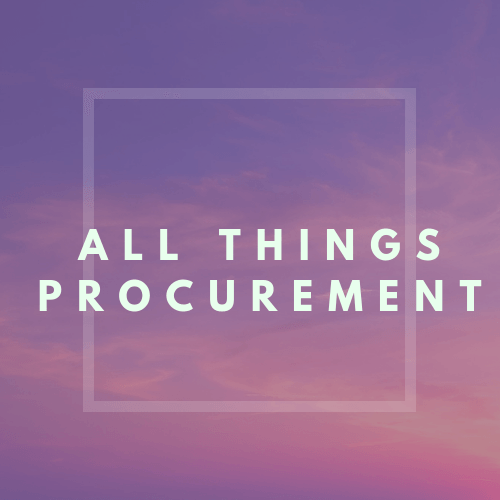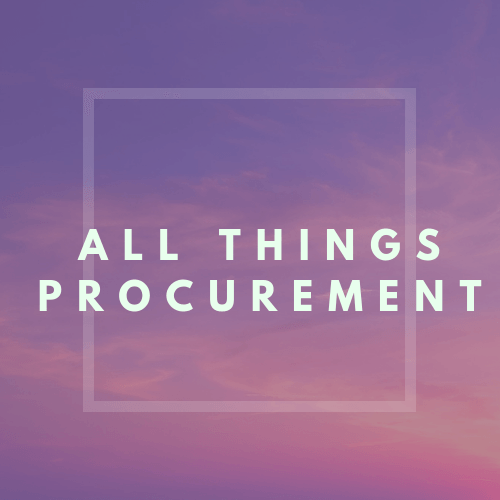Blog

In 2019 I approached the Federation of Small Businesses asking if I could work with them on trying to make it easier for small businesses to access and work in the public sector. They invited me to set up and Chair a Special Interest Group (SIG). The SIG is made up of small businesses and public sector organisations and our one exam question is centred around that widening participation agenda. We have 4 activity streams in the SIG, one of which is SME/VCSE development program. We've called it Go4Growth and it's a free (forever) program and community. Go4Growth as a team is made up of several small businesses working together to help other SMEs and VCSEs to navigate the sometimes complex world of the Public Sector. We have a built a program that we believe can help any smaller business, regardless of type. Here are just a few of our current focus areas: 1. Helping businesses to grow in the Public Sector 2. Building relationships or taking the first steps to supply the Public Sector 3. Collaborative working or consortia/partnerships 4. Building greater economic resilience for the future 5. Recovering from the impacts of COVID-19 6. Dealing with Brexit, environmental or other issues Our program offers support in various ways; our aim is to ensure it's accessible to everyone, personalised to your business so support is given in a way that makes the most sense and adds the most value to you. I'm really proud to be Go4Growth, I'm proud of the program, how quickly we have developed it and how only a few weeks in we are seeing more and more businesses get involved so already we're identifying barriers and helping businesses to overcome them. For any small businesses or VCSEs out there reading this blog, give me a shout. The program is there to help you grow in the public sector and connect you with a fast growing business community. Gill gill@go4growth.co.uk www.twitter.com/Go4Growth_UK www.LinkedIn.com/Company/Go4Growth www.facebook.com/Go4GrowthUK www.facebook.com/groups/Go4Growth

This week I wanted to write something that relates directly to the ethos of All Things Procurement – the social enterprise I run – which is ‘see the world how you want it to be then make it that way’. So I’m going to talk about the kind of world I want to live in and the things I’m doing to contribute to making that world a reality. To do that I need to give you some background. I’m a 47 year old woman and I adore the profession I chose (albeit by accident) way back in 1995. I’m what I lovingly call a ‘career procurer’. It’s what I do, it’s part of who I am and it’s given me so many opportunities over the years to really make a difference. I feel very lucky to have the career I’ve had but I will admit, it hasn’t all been plain sailing. Women in business I’ve worked in some sectors where my gender has definitely made it more difficult for me and I’ve felt the weight and pressure of that sadly many times. The need to work harder, be better, smarter, funnier even than my male counterparts and I’ve been that director where when I entered a boardroom full of my male peers, the quip was “Oh good, she’s here. Now we can have coffee” or being told I should categorically re-think the role I was about to undertake because no female executive had done it before, or when I got divorced to be told I was now “fair game”. It's not a small list sadly, and thankfully things have improved over the years but there is still much more to be done. Have those experiences soured me? No. Have they made me champion women in business? Absolutely yes. Last year I joined a Federation of Small Businesses (FSB) Women in Entrepreneurship group because I want to help young women feel empowered to set up their own businesses. I want to support and mentor other females who have the burning desire to do great things but may not have the confidence to get started. I’ve been a part of women in business and women in procurement groups for years, all of which are designed to help women forge their careers without apology. I will do all I can to help women navigate their chosen career path because sometimes; all it takes is for somebody to see your potential, and help you take the all important first step in the right direction. Judge me on my talent Does any of this make me a feminist? I’ve often wondered about this over the years. I’m not a fan of labels, but I guess if I had one it would more likely be that of an individualist. I want to live in a world where your success is driven by your own ambition and on your talent; and those things alone. I want to live in a genuine meritocracy where the barriers to entry don’t exist and the equality of opportunity is tangible. I want to be judged on what I do and how I do it; my values, talent and work ethic. This is evident in how I am shaping All Things Procurement which is founded on the principles of widening participation. I’m focussing right now on helping the small business and VCSE communities access the public sector where it can be notoriously difficult for smaller organisations. I am helping to help shape the public sector into a place where every business has the same ability to access. I am both a small business and a public sector procurement professional and have been for many years now, so having the insight from both perspectives helps me make sense of how to level the playing field better. I am helping to create more local employment opportunities, build resilience into local economies, increase the social and economic outputs for communities and spend the taxpayers’ money better. Building diversity into the supply chain I’m focussing on helping make the public sector business environment both traversable and accessible for small businesses and VCSE’s. I’m happy to say I’m not alone in this and in doing so, the process itself starts to naturally build diversity into the supply chain. It’s a big ask and I’m grateful that the Special Interest Group I chair on behalf of the FSB is full of people who have the same ambition and aspirations. It takes real commitment and passion to drive through change and we’re starting to make a real difference. I’m Gillian. And I’ve seen the world how I want it to be and I’m doing my bit to make it that way.

There’s a real juxtaposition when I think about the re-opening of society and what the ‘new normal’ will look like. Economically we need to recover. The economic devastation COVID-19 has and continues to cause is as widespread as the disease itself. But the cost of human life will always be too high a price to pay and so balancing economic recovery and the need to protect life feels to me like a balancing act like no other. The Public sector is open for business? I’ve been really impressed by the MAT board I recently joined, as we look at the guidelines being set out by the government. Pragmatically working out how we can best prepare for and support the children and parents of those year groups included to return to school first, but also how we do so with everyone’s safety in mind too. And of course like many other schools, ours also never actually closed. Small businesses all over the country are in perilous financial positions – some have already gone under. I saw a post this week on Twitter saying the public sector is open for business. But I wonder, is it really? It took a while for the bid notices to slow down granted but I haven't personally seen them come increase significantly yet. I have a ton of questions right now in terms of what the market will look like post COVID; including how we recover economically, how long will it take and who needs to do what? Supporting the small business community These are all questions our Special Interest Group are asking during our content meetings. We’re working hard on behalf of and in conjunction with the Federation of Small Businesses (FSB), to develop a suite of resources to support small businesses who either want to start a commercial relationship within the public sector, or want to grow their existing business within the public sector and of course now, we’re considering how we support small businesses to recover. What is clear from some of the networking groups I’m part of is that there’s a real focus within the public sector on supporting the small business community as we try to re-start the economy. This is good news, no doubt about it, but ‘how’ we go about remains a bit elusive, which is why our Special Interest Group is looking focussing on the ‘how’. How can we help small businesses recover; grow, and in time thrive? Our brief has always been about widening participation for small businesses within the public sector but what COVID-19 has done is really move this topic up the agenda within the public sector itself. Navigating through uncertain times In virtual meetings all across our nation we’re individually and collectively trying to address the question of local supply chains and how the public sector can support local economic recovery in the short term. But also to build more stable, agile and scalable local supply chains so that should we ever be faced with a crisis of this magnitude again, local economies are prepared for it, withstand it and come out the other side intact. It's not a simple ask. Not least because the data environment simply doesn't exist in the way that it should. There’s no single data set that lays out what the local business landscape looks like, nor is there one single public sector pipeline and these things make recovery difficult to navigate. It’s also worth remembering that in the midst of COVID-19, is our exit from the EU and the need to reform the public contracting regulations which will also change how we do business in the UK. Working at pace Our Special Interest Group is working at pace to create recommendations for the FSB on how we can support small businesses, where we need to influence government policy, where we need to lobby for changes in legislation and what tangible help might look like. Then of course, we need to assess how quickly we can get that available help to the small business community. This virus has caused untold devastation to our nation and we are duty bound to make sure some good can come out of it where possible. If, as a result of all this, the small business community becomes more visible and more integral to the supply of the public sector, that’s one positive. Also making the process of engaging local business more simplified and accessible would be a very long overdue win and I truly hope this happens. My colleagues in the Special Interest Group and I are doing all we can to help make it that way.

We are pleased to share our Plan On A Page which show the 4 key headline areas All Things Procurement are focussing on. As a social enterprise this plan and the detail that sits behind it, including a set of outputs will be published in our Memorandum and Articles of Association as public documents against which we can be measured. The detailed plan and outputs will be issued shortly.

Being part of something I first became a governor of a primary school in Upton, Wakefield, in 2016 and absolutely loved it. Don’t get me wrong; it's not easy, that first foray into being a governor and having not had children I didn't know the school system very well either. Whilst I understood governance, learning how to govern a school was not straightforward. Despite that, I enjoyed being a part of the school and doing my bit to help to make sure that our children had the best we could give them. Sadly, I had to leave my tenure early due to some significant health issues in my family. But last year as my family recovered, I knew I wanted to seek out a new governance role. Clear vision and values I started my career in procurement in early 1995 (wow, nearly 26 years ago) and over that time I’ve established a clear vision based on social value, mobility, equality and participation. I campaign for fairness in business and in life and I challenge when I see it lacking. I'm not afraid to hold the mirror up to myself or to the organisations I work with or to try to fully represent what I believe in. In business last year, having set up All Things Procurement (ATP) I approached the Federation of Small Businesses (FSB) for support around widening participation for the small business community within the public sector. They invited me to set up a Special Interest Group which I now chair on their behalf. My beliefs are also why getting invited to support the probation reform programme within the Ministry of Justice was an easy yes for me. One of the programme aims is to increase the participation for small businesses, local provision and the voluntary, community and social enterprise (VCSE) sectors through procurement. I founded All Things Procurement on these principles, and in my personal life I behave in-line with the values that I hold dear. I’ve seen the world the way I want it to be and I’m keen to do my bit to help make it that way so it made sense to me that I would want to find a governorship that would appeal to my passions and beliefs. When you know you know I’m proud of my long standing position as a volunteer in Education for Inspiring The Future run by Education and Employers. They were actually heavily involved in helping me find my next Governance opportunity and after spending some time with me, they introduced me to Nexus Multi Academy Trust. I did already have some prior knowledge of some of the schools in the Trust from when my husband and I ran our Care Farm in 2013-2019 and from the moment I met the Trust and listened to its values, culture and ambitions, I knew it was a team I really wanted to join. I'm happy to say they felt the same way and I joined as a Director of the Trust Board on 1st April this year. Celebrating individuality Nexus is a school led Trust and at its core there’s a real celebration of what makes each school unique. The Trust has been built on respecting the individuality of each of the schools, whilst providing support and guidance to the schools, students and their communities. The team are dedicated to mastering the tough balancing act of being able to get the best out of being part of a Trust, whilst never losing sight of how important the local elements are. This is one of the things that most attracted me to Nexus. That, and its ambitions, goals and strategic capacity. What I’ve found is a Trust that puts the children in our schools at the beating heart of everything it does and the Trust work tirelessly to put support in place that makes sense now, and in the future. I’m so grateful that Nexus have seen something in me that they feel aligns with their values and ambitions and they’ve given me a fantastic opportunity to bring my skills and knowledge to the Board. I’m here to support the schools and their students as best I can and to help continue to develop this incredible school community that I’m proud to be part of.

On Thursday 23rd April, I attended a COVID-19 supply chain workshop which explored some of the challenges the health service has faced and is currently facing, as well as lessons learned. A line from one of the speaker’s opening address particularly resonated with me: ‘Public service is what you do, not who pays your salary.’ I couldn’t agree more. We explored two main actions: 1. Action for now – to continue the drive to support our country through the pandemic with critical supplies 2. Action for the future – to prepare for a second wave if there is one, or preparation for if another pandemic hits us in the future We need to make sure we can use the valuable learnings and experiences from crisis management and future-proof; to make sure we’re as prepared as we can be for any future crises Using data to predict and prepare We also heard a lot about data and the usage of it. This was doubly interesting to me as I know it is a key area of focus in the rules reform when looking at what public procurement could look like post Brexit. In terms of a pandemic, being able to better predict the disease path and what will be needed where, when and for how long is crucial to the supply management of something like this. It plays a crucial role into asset usage, because data can tell us where the best place for a product is based on a set of needs and priority parameters. Some may argue that asset utilisation isn’t a new concept and they'd be right, it's not. But doing something like that on a national or even regional basis, especially when you're under this much duress, is incredibly difficult. Streamlining supply and demand That being said, the Greater Manchester Health and Social Care Partnership (GMHSCP) talked through some great examples of how they’ve been doing exactly that in their region. They have in effect, acted as one joint region when looking at product need and provision. It can be complicated to navigate critical need versus comfort stock, but the GMHSCP has been moving supplies around to where it’s needed most, streamlining supply and demand. To give this some context, in terms of PPE, they’re using three or four times as much as they would normally, so in addition to good quality asset utilisation they have had to think creatively about product sourcing. Think local One of the outcomes has been around local sourcing. Neil Hind from GMHSCP says that now more than ever it’s absolutely critical to be able to access and optimise your local supply chains or develop new local supply routes. For example, GMHSCP are supporting new manufacturing lines in Manchester. In addition, there’s improved management information and a much more dynamic decision-making processes at play. It’s not lost on me then that in the midst of all the crisis management has come an absolute recognition of the power of procurement. If I may be so bold as to suggest, perhaps another group of unsung heroes in this are those who have been, and continue to be, tireless in their pursuit of product that will help treat this disease and ultimately save lives. Inundated with support As a career procurement professional focussing on developing small businesses within the public sector, the ask from Neil at GMHSCP was interesting. Whilst they’ve been successfully procuring from new entrants including managing the required checks and balances; such as agreement builds, product checks etc they also acknowledge that they can be and have been inundated with offers of support. Whilst this is brilliant, there needs to be some thought given as to how this support can be used efficiently. This is definitely something for me and the Federation of Small Businesses Special Interest Group to give careful consideration to. All in all, I came away from the workshop with a renewed sense of pride and gratitude to all my fellow procurement professionals in the public sector, many of whom are performing an impossible task in the most challenging environment our generation has ever faced.

Pace and change I’ve been amazed at the change of pace within the public sector over the past six weeks and how well people and processes have adapted. Decisions that would’ve previously needed multiple meetings, months of discussion and layers upon layers of approvals are now being signed off so much more dynamically. In some cases, governance may well have had to alter to reflect our new environment but even this can be managed in a way where the result is controlled, and unnecessary risk is minimal. Normal wasn’t working But how will the public sector take stock of the invaluable learnings we’re gaining during this period of duress? The trick surely would be to keep hold of the good bits, recognise what has worked well and embed them in as new ways of working. Acknowledge what was chaotic and imperfect and resolve to leave these ways of working behind us. I'm hopeful that the public sector will not slip back into how it was before because that would be a travesty in many ways. The UK economy needs us to take the positive lessons out of this situation and drive them forward. I saw a post on Facebook this week that said: ‘We don't want to go back to normal because normal wasn't working’ and I agree with that. Joint bidding On my current commission within the Ministry of Justice, I had the pleasure of attending a joint bidding presentation made by Dr Jane Lynch from Cardiff University. My primary learning space within this project is how we can support smaller business supply chains. It also dovetails with the tender readiness project that I’m involved in and this is an example of just one of the activities that's developed on the back of that. Collaboration can be transformational within the small business communities, especially when geographical scope is broad or the public sector contract value is substantial and so it was brilliant to have received some invaluable insights which I plan on sharing in a separate blog post. As individuals we notoriously find it hard to embrace change. But as a society, under duress, we are proving that it can be done and can be done effectively. I just hope we don’t rush back to old habits because by welcoming and being in control of the change, we can break the chain and deliver better results for the future. After all, the future is ours to design, we simply have to see how we want it to look and then make it that way.

It’s usually in times of duress that we find out what we’re really made of and this is also true in business. During the past couple of weeks I've been heartened by, and wanted to share some examples, both local and national, of how the public sector has been supporting its suppliers. Especially small and medium-sized enterprises (SMEs) and voluntary, community and social enterprises (VCSEs) during what is one of the most, if not the most challenging times of our generation. All in this together - In North Yorkshire, the county council and their procurement team have been tireless in their pursuit to issue support to their suppliers, including a focus on smaller, local businesses and VCSEs as well as supporting key supply chain deficiencies like personal protective equipment (PPE) for key workers in the care sector. Read more on this story here. Adapting processes during Covid-19 - Any suppliers who usually post invoices to North Yorkshire are now asked to email these directly to their designated contact rather than post. Find out more about other business support here. Showing support to those in need - Supermarkets, convenience stores and other local shops have been urged to come forward with details of how they can provide support to people in need of help but may not covered by the government scheme. Lots of people will qualify for the scheme and will receive food care packages, but there will also be many who don’t fall into this group but have no friends or family to rely on for help. “People should also turn first to family, friends and neighbours for help with things like getting in groceries or collecting medication. If that network is not available, please also look to community organisations or groups to which you belong. If none of those options are available, we are working with district council colleagues and selected community organisations to deliver that support.” You can read more on this support here. Preventing the collapse - Doing their bit to help, North Yorkshire County Council recognises how critical their supply chains are to their service delivery and have agreed to pay all SME suppliers as a matter of urgency. Instead of the usual 30-day payment period, payments will be made immediately. You can read more information on this here. They are also looking to implement the additional support detailed in a recent Procurement Policy Notice issued by Government as appropriate and will be lobbying government on the behalf of local businesses. £13m emergency fund to support the Barnsley community - Barnsley Council have announced a multimillion-pound package of support for Barnsley's communities and local businesses. The announcement speaks of support packages such as a £13m emergency fund to support adult social care, vulnerable children, homeless and rough sleepers. As a small business myself and a Barnsley resident, it was equally great to see the following post on Twitter by Enterprising Barnsley. They've paid out over £19m to 1,762 Barnsley businesses and they don't intend to stop there! Community spirit - More support is definitely needed and not just in Barnsley or North Yorkshire. Up and down the UK, businesses and communities still need help. So it’s also good to see the following information around some of the big public sector buying organisations (CCS, YPO, NEPO & ESPO) coming together to help reduce the impact of Covid-19 on the contingent labour market. This is a market that has a large proportion of small agencies and they, like their workers will no doubt benefit from the public sector joining forces to support them. I guess what I'm trying to say is that whilst things are difficult, uncertain and indeed very challenging, we need to pay tribute and give thanks to the public sector organisations who are rolling their sleeves up and doing their bit. They’re doing anything and everything they can to support their communities and local business supply chains, and it’s helping. Team spirit and working together matters, more than it’s ever mattered before. Surviving then thriving in challenging times - I will never be able to express my genuine sorrow at the losses in both life and business this pandemic has, and continues to cause. It’s personally impacted my family just like it's impacted so many others and I, like many, don't know what we'll look like as a nation when we come out of the other side of this. But I do know that business will continue and so I pledge to carry on doing all I can to help other small businesses win work and hopefully go on to thrive within the public sector. Nothing's perfect and regardless of how much support there will ever be out there, there will sadly inevitably be casualties in the business world, and this pandemic isn't done with us yet. But that doesn't mean we can't or shouldn't celebrate the positive success stories and small wins along the way. When you’ve seen the world the way the way you want it to be, then we have to do everything we can to make it that way.

During the current coronavirus crisis, everything I’m thinking about at the moment is revolving around helping small businesses in the public sector as well as the voluntary, community and social enterprise (VCSE) sector. Good news amongst the gloom Small businesses will potentially find navigating the world of COVID-19 much harder than big businesses (dependant on what they do and how they do it, of course), but the good news is I’ve noticed that the number of bids being launched by the public sector on a daily basis doesn't seem to be showing any signs of slowing down. With this in mind, I’ve been specifically looking at the following over the last couple of weeks: Getting to grips with the world of bid writing The Federation of Small Businesses Special Interest Group (FSB SIG) has made a start in building a tender readiness learning environment for small businesses. We’ve broken the learning environment down into five key areas: 1. Basic bid credibility – all the core elements any business will need in order to be able to bid into the public sector. Things like policies, insurances, process etc. Sadly not very sexy, but very necessary 2. Finding opportunities – Knowing about the relevant portals and tendering advertisements going live that you can get involved in 3. The bid/no bid decision and how best to make it. Including understanding and interpreting the legal terms and conditions and building risk profiles 4. Writing the bid itself and how to execute it, ensuring you meet all the criteria 5. Operating environment, contract management, mobilisation, and exit or renewal Rules reform consultation On 16th March our FSB SIG had an influencing meeting with government where we fed into the rule reform consultation. A number of small business attended the call, with the main topics of discussion being: · Remedies · Award and selection · Process · Frameworks · Digital It was really interesting to hear how the thought processes are currently coming together and we talked a lot about the barriers to procurement for small businesses or VCSE sector organisations. We also discussed some key policy areas and how they may change over time, such as Buy British, the Green Agenda, Localism and SME communities. On the back of that call I hope to have a follow up meeting with the Public Procurement Review Service (PPRS), previously known as the Mystery Shopper. This played into a conversation about escalation and governance and what levers small business have to call on if process is not utilised correctly (other than litigation). I’ll keep you updated on the progress of this in a future blog post. Choosing local One of the main motivating factors for me getting involved in some of the projects I’m currently working on, is to encourage a change in attitude around the procurement process. From a system that favours the traditional big players to one which encourages more small businesses and VCSE organisations to be involved and become local providers, drawing on local knowledge and expertise. Good procurement should, in my opinion, celebrate diversity in the supply market. It shouldn't discriminate against any sector of business based on size. Instead it should deploy processes that are fit for purpose and ensure the right organisation for the job is found through the bid. All too often however, the bid process itself is a barrier to entry for small organisations. This means that even where there is good intent, the process burden can count smaller players out. It's my mission to be the spokesperson of these smaller businesses that often get overlooked, doing what I can to make sure their voices are amplified, and support is given where possible. It’s quality over quantity and with a bit more support and guidance, I truly believe we can diversify and strengthen the supply chain to the benefit of all involved. What changes can be made now? Over the past few weeks, I’ve noticed there are around the same number of procurements being let and despite these uncertain times, it’s clear the show must go on. What’s still not clear though, is if more small businesses have had to pause through necessity, what impact this will have in terms of making bidding more or less attractive to them? Is there more time to consider bids right now, or is it just too difficult a time? In any case, it's made me realise that our SIG can't afford to pause on developing good tools and support for small businesses to be able access the public sector. If anything, we need to add pace! After all, with the changes we’re seeing right now, there’s never been a better time for fresh thinking. As we all know, it’s important not just to see the world the way you want it to be, but also to have the drive and determination to make it that way.
